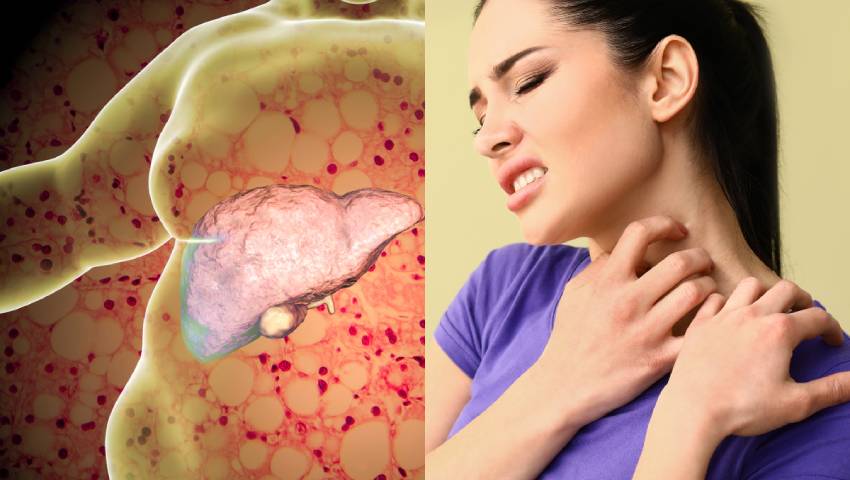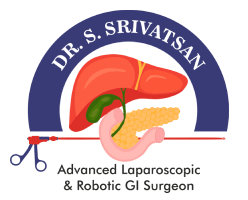
- 10/08/2024
- Dr. Srivatsan Gurumurthy
- 0 Comments
- Blog
Signs of Liver Damage and Ways to Tell
Did you know you can treat liver damage? If you’re seeking liver damage treatment in Chennai, you’re in the right place. Visit Dr. Srivatsan Gurumurthy at GEM Hospital, Chennai! The liver plays a crucial role in detoxifying the body, producing essential proteins, and aiding digestion. Early recognition of liver damage is key to effective treatment.
Dr. Srivatsan Gurumurthy, an expert in liver disease treatment and liver transplant surgery, offers valuable insights into identifying liver damage and diagnostic approaches for assessing liver health. Dr. Srivatsan Gurumurthy is Best Liver Cancer Surgeon in Chennai is here to help. he also offers exceptional, personalized care for liver cancer surgery and other liver-related conditions. Begin your journey to top liver treatment in Chennai with us.
What is Liver Damage?
Liver damage can result from a variety of causes including chronic alcohol consumption, viral hepatitis, fatty liver disease, and certain medications. The liver is remarkably resilient, but prolonged damage can lead to conditions like cirrhosis, liver failure, or liver cancer. Early detection is crucial to prevent irreversible damage.
Causes of Liver Damage:
Causes of liver damage and failure can include:
- Alcohol Consumption
- Viral Hepatitis
- Non-Alcoholic Fatty Liver Disease (NAFLD)
- Medications and Over-the-Counter Drugs
- Autoimmune Diseases
- Genetic Disorders
- Exposure to Toxins
- Chronic Viral Infections
These diseases can cause liver damage and scar tissue, known as cirrhosis. When a person has cirrhosis, their liver does not heal, and scar tissue begins to replace healthy tissue.
Indications of Liver Damage:
Dr. Srivatsan Gurumurthy clarifies some typical signs and symptoms associated with Liver Damage:
- Jaundice
- Abdominal Pain and Swelling
- Unexplained Fatigue
- Dark Urine and Pale Stool
- Itchy Skin
- Nausea and Vomiting
- Unexplained Weight Loss
- Bruising Easily
- Swelling of the Legs and Ankles
- Confusion and Cognitive Changes.
Diagnosis of liver issues:
If you suspect liver damage based on these signs, it’s crucial to seek medical evaluation. Dr. Srivatsan Gurumurthy utilizes various diagnostic methods to assess liver health and determine the extent of the damage:
- Medical Record and Physical Test: Dr. Srivatsan Gurumurthy will start with a thorough review of your medical record and a physical examination. This helps identify possible risk elements and symptoms indicative of liver damage.
- Blood Tests: Blood tests are important in diagnosing liver damage. Key tests include liver function tests (LFTs), which measure levels of liver enzymes, bilirubin, and proteins. Elevated levels of liver enzymes such as ALT, AST, ALP, and GGT can indicate liver inflammation or damage.
- Imaging Studies: Imaging procedures such as ultrasound, CT scans, and MRI provide visual insights into the liver structure and can help identify anomalies such as tumors, fatty liver, or cirrhosis.
- Liver Biopsy: In some cases, a liver biopsy may be necessary to obtain a sample of liver tissue for microscopic examination. This helps determine the extent of liver damage and the underlying cause.
Elastography: This non-invasive test measures liver stiffness and can assess the degree of fibrosis or cirrhosis.
Treatment Options for Liver Damage:
Therapy for liver damage relies on the underlying cause and severity of the condition. Dr. Srivatsan Gurumurthy highlights the importance of early diagnosis and proper management. Here are common therapy approaches:
Medications:
- Antiviral Drugs: For viral hepatitis, antiviral drugs can help manage the infection and reduce liver damage.
- Corticosteroids: These may be defined to reduce inflammation in specific liver conditions, such as autoimmune hepatitis.
- Diuretics: To manage fluid retention and swelling in the abdomen.
Lifestyle Changes:
- Diet: Adopting a healthy diet low in fat, salt, and sugar can help manage liver conditions. Meals rich in antioxidants, vitamins, and minerals help liver health.
- Alcohol Abstinence: Avoiding alcohol is significant, especially for individuals with alcohol-related liver disease.
- Weight Management: Keeping a solid weight can forestall and oversee conditions like greasy liver sickness.
Surgical Interventions:
- Liver Transplant: For individuals with end-stage liver disease or severe liver damage, a liver transplant may be necessary. This procedure involves replacing the damaged liver with a healthy donor liver.
- Resection: Surgical removal of a portion of the liver may be needed for liver tumors or cancer.
Management of Complications:
- Treating Ascites: Diuretics and paracentesis (a procedure to remove excess fluid) can manage fluid buildup in the abdomen.
- Managing Hepatic Encephalopathy: Medications like lactulose can help reduce the absorption of toxins in the gut and manage cognitive signs.
Prevention Strategies:
Dr. Srivatsan Gurumurthy says a person may not be able to control all causes of liver damage, but they can take steps to reduce their risk and help prevent cirrhosis from worsening.
some tips to help prevent liver damage include:
- Healthy Diet
- Regular Exercise
- Avoid Alcohol
- Vaccination
- Safe Practices
- Regular Check-ups
When to Seek Medical Attention?
It is essential to seek medical attention if you experience any of the following:
- Persistent jaundice (yellowing of the skin or eyes)
- Severe abdominal pain or swelling
- Persistent fatigue and weakness
- Dark urine or pale stools
- Persistent nausea, vomiting, or itching
- Unexplained weight loss
If you notice any of these symptoms, consulting Dr. Srivatsan Gurumurthy promptly can lead to early diagnosis and treatment, improving the likelihood of successful management and recovery.
Conclusion:
Liver damage can have profound implications for overall health, but recognizing the signs early and taking appropriate actions can make a significant difference. Dr. Srivatsan Gurumurthy is a Robotic Surgeon in Chennai and he emphasizes the importance of understanding the symptoms, exploring therapy options, adopting preventive measures, and seeking timely medical care to ensure the best possible outcomes for liver health. If you suspect liver damage or have any concerns about your liver health, don’t hesitate to consult Dr. Srivatsan Gurumurthy for a complete evaluation and personalized therapy plan.
Don’t wait—take control of your liver health today!
